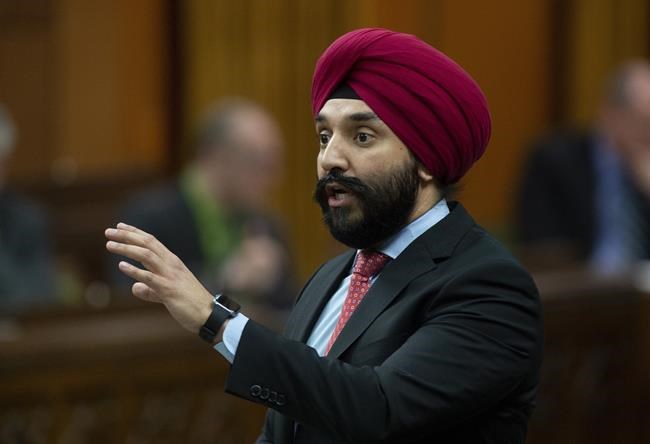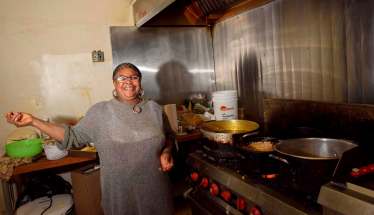Manitoba risks loss of internet millions Disputes threaten rural connectivity deal
Read this article for free:
or
Already have an account? Log in here »
To continue reading, please subscribe:
Monthly Digital Subscription
$0 for the first 4 weeks*
- Enjoy unlimited reading on winnipegfreepress.com
- Read the E-Edition, our digital replica newspaper
- Access News Break, our award-winning app
- Play interactive puzzles
*No charge for 4 weeks then price increases to the regular rate of $19.00 plus GST every four weeks. Offer available to new and qualified returning subscribers only. Cancel any time.
Monthly Digital Subscription
$4.75/week*
- Enjoy unlimited reading on winnipegfreepress.com
- Read the E-Edition, our digital replica newspaper
- Access News Break, our award-winning app
- Play interactive puzzles
*Billed as $19 plus GST every four weeks. Cancel any time.
To continue reading, please subscribe:
Add Free Press access to your Brandon Sun subscription for only an additional
$1 for the first 4 weeks*
*Your next subscription payment will increase by $1.00 and you will be charged $16.99 plus GST for four weeks. After four weeks, your payment will increase to $23.99 plus GST every four weeks.
Read unlimited articles for free today:
or
Already have an account? Log in here »
Hey there, time traveller!
This article was published 04/08/2020 (1957 days ago), so information in it may no longer be current.
OTTAWA — The Pallister and Trudeau governments unveiled a plan in 2018 to finally bring Manitoba’s internet access up to speed, but it fell apart over an ongoing split within the province’s First Nations.
Two years later, internal records show the unresolved conflict raises the risk of the province further losing out in a looming federal spend to connect rural Canadians during the COVID-19 pandemic.
Grand chief denies conflict of interest
OTTAWA — Manitoba’s grand chief rejects the idea he is in a conflict of interest over Ottawa’s preferred bid for bringing broadband internet to the province’s rural communities.
OTTAWA — Manitoba’s grand chief rejects the idea he is in a conflict of interest over Ottawa’s preferred bid for bringing broadband internet to the province’s rural communities.
The Wekitowak bid has Mathias Colomb Cree Nation as its main Indigenous partner. Arlen Dumas is currently head of the Assembly of Manitoba Chiefs, but was recently the local chief of that community.
The Cross Lake band, which often asserts its autonomy from larger groupings, alleged in August 2018 the Wekitowak bid contains “an institutionalized conflict of interest,” as it is linked to Dumas’ home community.
Numerous chiefs supporting the competing Clear Sky bid have quietly cited Dumas’ involvement for rejecting Wekitowak.
Dumas confirmed to the Free Press he was involved in the Wekitowak bid as the former chief of his community, but said he stepped back when he was elected AMC grand chief in July 2017.
“I immediately formally removed myself from all previous initiatives and community aspects that may lead to the perception of a conflict of interest in any respects upon becoming grand chief, and continue to do so at present,” he wrote.
— Dylan Robertson
In January 2018, Premier Brian Pallister joined federal Industry Minister Navdeep Bains in announcing a joint $55.5 million in funding to connect 72 remote communities across the province by March 2021.
In the weeks before the announcement, Ottawa merged two competing bids, who each had a mix of First Nations support. However, the partnership dissolved within weeks; Ottawa favoured one bidder, prompting swift outcry from some First Nations.
Emails exchanged by Industry Canada bureaucrats show staff scrambling to arrange endorsements from chiefs, bands accusing Ottawa of planning infrastructure without local consent, and allegations of Manitoba’s top chief holding a conflict of interest.
“It’s caused a lot of division in Manitoba,” said Lisa Clarke, who leads one of the two bids, Clear Sky Connections (CSC).
Ottawa opted for a competing bid, Wekitowak, which the public service deemed to have a cheaper proposal (Clarke disputes the math).
Both aim to piggyback on Manitoba Hydro’s optic-fibre cables to link remote communities who currently have internet akin to a dial-up connection.

Manitoba’s rural zones have some of the worst internet speeds in Canada. “Northern Manitoba has the worst connectivity in all of Canada,” reads an August 2018 report to the top bureaucrat at Industry Canada.
Internal records show the Wekitowak project sought $30 million in federal funds for its $62.5-million budget, after having Manitoba Hydro and private investors cover $20 million in expenses.
Clarke said CSC planned between $90 million and $150 million, based on connecting more communities, and installing cable in a method that withstands deep freezes and shifting muskeg.
The bids differed in how fibre optic would be laid out, and how to pay for the local loop of connections, which by length tend to be more expensive than the main “backhaul” connection.
According to Industry Canada reports, the department sided with the cheaper bid, “given that both proposals were similar in terms of benefiting the FN communities in MB, but that were far apart in terms of the amount of funding being requested” and “both proposals were targeting the same FN communities and were both being championed by different Aboriginal representatives.”
Wekitowak had partnered with Brandon-based firm RFNow, which would cover construction costs and thus a much cheaper option, in exchange for a decade of shared profits.
Yet in August 2018, Manitoba chiefs voted unanimously on a resolution to “arrive the support for Clear Sky Connections,” saying only that bid has “the mandate to negotiate” with the federal and provincial governments.

Some chiefs felt Wekitowak would be building infrastructure in their territory without their consent. (The group has always allowed chiefs to opt-out of having their communities connected to the backbone network it would be building, and opt for another provider.)
Aware of those concerns, Ottawa had tried to smooth things over in late 2017, by merging Wekitowak and CSC under the name Clear Sky Communication.
In order to secure provincial and federal funds, bureaucrats got chiefs to endorse the joint venture, navigating a rotating set of band elections to make sure the project had local consent. But the partnership fell apart over disagreements in how much control and work (and thus profit) each of the two would be given.
Wekitowak and CSC reverted to their former names within a few months of the funding being announced. Industry Canada documents show this confused chiefs over which partnerships they’d already endorsed — some appear to have signed on with each competing bid, as well as the defunct joint one.
By the end of summer 2018, Industry Canada offered an external mediator, in a failed attempt to bring the two groups back together.
Clarke says both bids spent a decade laying the groundwork, and blames federal bureaucrats for fumbling the project. “It took a long time to get the unity, and then to be pushed into this partnership,” she said.
“All of the ugliness from then until now, has done nothing but hurt the communities that deserve this service.” – Chris Kennedy
Chris Kennedy, who runs RFNow and shepherded the Wekitowak bid, also blames Ottawa for rushing out an announcement on the assumption the unresolved issues would fall into place.
“All of the ugliness from then until now, has done nothing but hurt the communities that deserve this service,” Kennedy said.
Things got worse by the fall of 2018, as bureaucrats struggled to keep the Wekitowak bid going. It had just one-third of Manitoba reserves issuing support in writing — a process that often involved flying to a remote community after newly elected council took office.
The department organized a phone-in meeting to present Wekitowak to chiefs, and clear up confusing over the different bids. Kennedy and his business partners at Mathias Colomb Cree Nation worked the phones last-minute to drum up interest.
Some chiefs pushed back, arguing Wekitowak wasn’t lead by Indigenous people. Others took issue with the involvement of Arlen Dumas, who hails from Mathias Colomb and recused himself from the bid when he became the province’s grand chief.
“Community support is critical to any project going ahead,” reads one senior bureaucrat’s email.
In an early September email to Industry Canada, Bains’ office requested “to speak with someone urgently about Clear Sky.”
“It is getting hard to be patient with attacks from an entity that will lie, mislead, whatever words should be used.” – Chris Kennedy
The next day, chiefs endorsing Clarke’s bid wrote to Pallister and Prime Minister Justin Trudeau, accusing Industry Canada of “setting a dangerous precedent” by ignoring their will, and even perpetuating “economic genocide.”
She claimed Industry Canada bureaucrats were unfairly extending deadlines to allow Wekitowak to fulfill its requirements.
That same week, Kennedy expressed dismay at CSC accusing his Wekitowak bid of lacking Indigenous leadership and support.
“It is getting hard to be patient with attacks from an entity that will lie, mislead, whatever words should be used,” he wrote to the Industry Canada team.
At that point, Clarke suggested in an email Ottawa split the cash between the two bids, based on how many communities supported each.
Instead, the project came to a standstill by late 2018.
For a year-and-a-half, Wekitowak’s only progress has been occasional meetings with the department and requests for documents.
Separately, CSC has used cash from Indigenous Services Canada to build a fibre-optic link from Thompson to Nisichawayasihk Cree Nation, 80-plus kilometres away. The service should start by October, and CSC is preparing to link five other reserves.
Federal sources say Rural Economic Development Minister Maryam Monsef is set to announce a major package around mid-August. Eight weeks ago, Monsef said she’d launch a $1.7-billion broadband fund “in the coming days,” though nothing has been announced.
Federal sources who weren’t authorized to speak on record say the lack of a clear plan for Manitoba is holding back the announcement.
Industry players suspect Ottawa will cancel any existing deals and restart bids for connecting Manitoba communities. They expect separate companies will drive up costs by tapping into the same pool of contractors.
dylan.robertson@freepress.mb.ca
History
Updated on Thursday, August 6, 2020 3:43 PM CDT: Clarifies that chiefs endorsing Clarke's bid wrote to Pallister and Trudeau, not Clarke.







